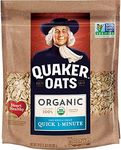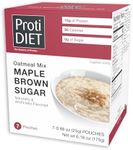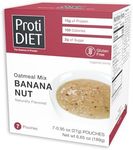Buying Guide for the Best Heart Healthy Cooking
When it comes to heart-healthy cooking, choosing the right products can make a significant difference in maintaining and improving your cardiovascular health. The key is to focus on products that help you reduce unhealthy fats, sodium, and added sugars while increasing your intake of fiber, vitamins, and minerals. Here are some key specifications to consider when selecting heart-healthy cooking products and how to navigate them to find the best fit for your needs.Fat ContentFat content is crucial because not all fats are created equal. Unsaturated fats, such as those found in olive oil, avocados, and nuts, are beneficial for heart health, while saturated and trans fats can increase the risk of heart disease. When choosing cooking oils or spreads, look for those high in unsaturated fats and low in saturated and trans fats. If you are cooking frequently, opt for oils like olive or canola oil. For spreads, choose those labeled as 'heart-healthy' or 'low in saturated fat.'
Sodium LevelsHigh sodium intake is linked to high blood pressure, which is a risk factor for heart disease. When selecting products like canned goods, sauces, or seasonings, check the sodium content on the label. Products labeled 'low sodium' or 'no added salt' are better choices. If you are sensitive to salt or have been advised to reduce your sodium intake, aim for products with less than 140 mg of sodium per serving.
Fiber ContentDietary fiber is important for heart health as it helps to lower cholesterol levels and improve digestion. Whole grains, fruits, vegetables, and legumes are excellent sources of fiber. When choosing bread, pasta, or cereals, look for those labeled 'whole grain' or 'high fiber.' Aim for products with at least 3 grams of fiber per serving. If you are looking to increase your fiber intake, consider incorporating more whole foods like beans, lentils, and leafy greens into your meals.
Added SugarsExcessive consumption of added sugars can lead to weight gain and increase the risk of heart disease. When selecting products like yogurt, cereals, or snacks, check the label for added sugars. Products labeled 'no added sugar' or 'unsweetened' are better choices. If you have a sweet tooth, opt for natural sweeteners like fruit or small amounts of honey instead of processed sugars.
Portion SizePortion size is important because even healthy foods can contribute to weight gain if consumed in large quantities. Pay attention to the serving size on the nutrition label and try to stick to it. When cooking, use measuring cups or a food scale to ensure you are eating appropriate portions. If you are trying to manage your weight, consider using smaller plates and bowls to help control portion sizes.
Nutrient DensityNutrient density refers to the amount of vitamins, minerals, and other beneficial nutrients in a food relative to its calorie content. Foods that are nutrient-dense provide more nutrients per calorie, making them better choices for heart health. When selecting products, look for those rich in vitamins, minerals, and antioxidants, such as fruits, vegetables, nuts, and seeds. If you are looking to maximize your nutrient intake, focus on incorporating a variety of colorful, whole foods into your diet.





















